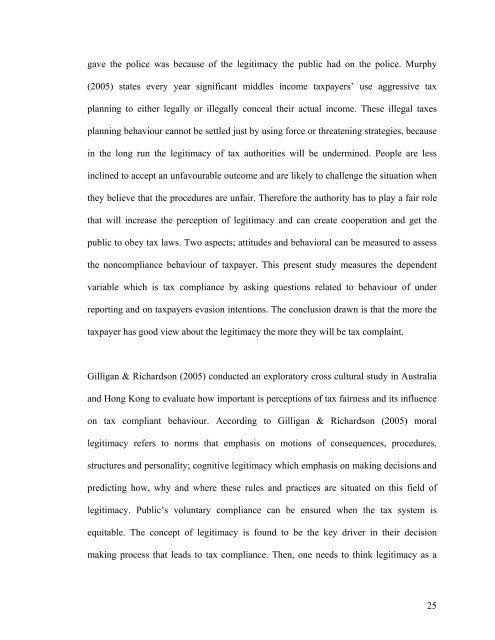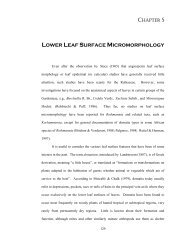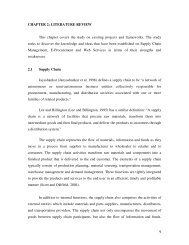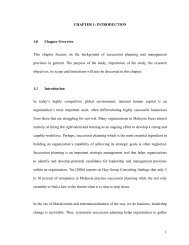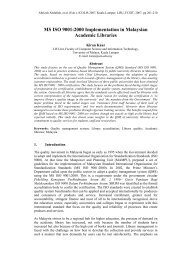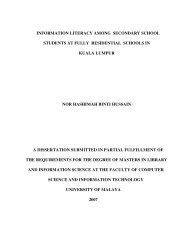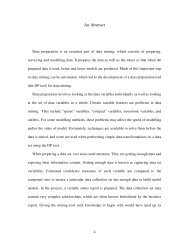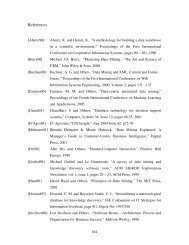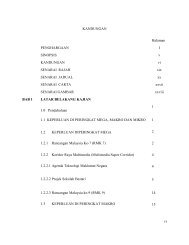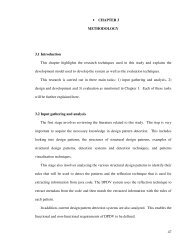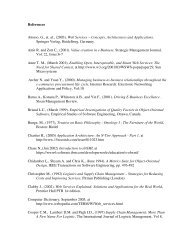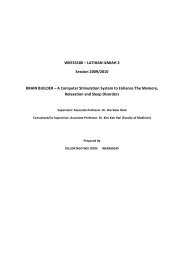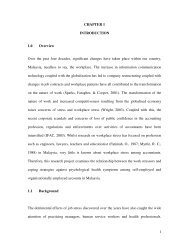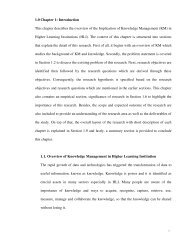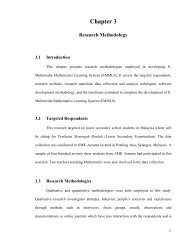1 CHAPTER 1: INTRODUCTION 1.0 Chapter ... - DSpace@UM
1 CHAPTER 1: INTRODUCTION 1.0 Chapter ... - DSpace@UM
1 CHAPTER 1: INTRODUCTION 1.0 Chapter ... - DSpace@UM
You also want an ePaper? Increase the reach of your titles
YUMPU automatically turns print PDFs into web optimized ePapers that Google loves.
gave the police was because of the legitimacy the public had on the police. Murphy(2005) states every year significant middles income taxpayers’ use aggressive taxplanning to either legally or illegally conceal their actual income. These illegal taxesplanning behaviour cannot be settled just by using force or threatening strategies, becausein the long run the legitimacy of tax authorities will be undermined. People are lessinclined to accept an unfavourable outcome and are likely to challenge the situation whenthey believe that the procedures are unfair. Therefore the authority has to play a fair rolethat will increase the perception of legitimacy and can create cooperation and get thepublic to obey tax laws. Two aspects; attitudes and behavioral can be measured to assessthe noncompliance behaviour of taxpayer. This present study measures the dependentvariable which is tax compliance by asking questions related to behaviour of underreporting and on taxpayers evasion intentions. The conclusion drawn is that the more thetaxpayer has good view about the legitimacy the more they will be tax complaint.Gilligan & Richardson (2005) conducted an exploratory cross cultural study in Australiaand Hong Kong to evaluate how important is perceptions of tax fairness and its influenceon tax compliant behaviour. According to Gilligan & Richardson (2005) morallegitimacy refers to norms that emphasis on motions of consequences, procedures,structures and personality; cognitive legitimacy which emphasis on making decisions andpredicting how, why and where these rules and practices are situated on this field oflegitimacy. Public’s voluntary compliance can be ensured when the tax system isequitable. The concept of legitimacy is found to be the key driver in their decisionmaking process that leads to tax compliance. Then, one needs to think legitimacy as a25


